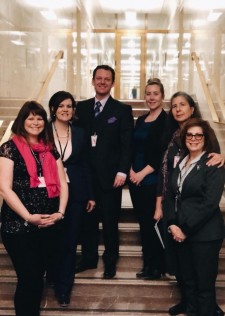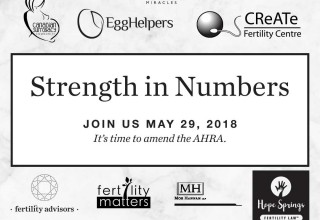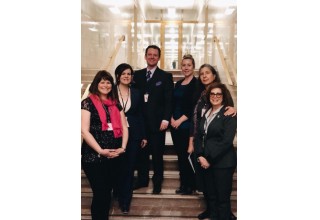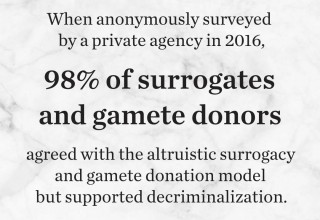
Member of Parliament Anthony Housefather announced in March that he would be planning a private members bill that would change the future of assisted reproduction in Canada.
TORONTO, May 17, 2018 (Newswire.com) - In 2017, Fertility Advisors began lobbying the Canadian government to decriminalize the payment of surrogacy and gamete donation with Liberal MP Anthony Housefather. They were also joined by numerous fertility lawyers, physicians, agencies, surrogates, egg donors, and parents through surrogacy, as well as other members of parliament in support of amending the Assisted Human Reproduction Act (AHRA).
Surrogacy and gamete donation in Canada is legal, but providing compensation beyond expenses is prohibited. Intended parents can face up to 10 years in prison and $500, 000 in fines. The regulations under the AHRA are often confusing and contradictory, which has caused many hopeful Canadian parents to seek surrogacy and gamete donation services in other jurisdictions such as the United States.
Having this criminal code attached to a women's reproductive rights issue is completely out of line. Ten years in jail for purchasing a gift for a surrogate, or up to a $500,000 dollar fine is not in line with Canadian values at all.
Leia Swanberg, CEO of Fertility Advisors
Prime Minister Justin Trudeau says Canadians need to have a conversation about whether to allow women and men to be paid to donate eggs or sperm for fertility treatments. While many strong opinions are expected on this proposed change, Trudeau says he believes it is an important issue that needs to be studied. “This is not an easy situation, this is a very complex,” he said Wednesday during a news conference with the head of the NATO military alliance.
While some welcomed the idea to change the law, one bioethicist warned about Canada "putting the human body in the marketplace." "We don't celebrate something like selling organs, selling bone marrow, selling skin, selling blood, selling plasma," Françoise Baylis said on CBC's Information Morning: Nova Scotia on Thursday. "I don't think it's part of Canadian values to say… let's encourage people to sell all their bits and pieces," added Baylis, who is a professor and Canada Research Chair in Bioethics and Philosophy at Dalhousie University. Leia Swanberg disagrees. She believes that regulation can protect surrogates and prospective parents, but that can't happen before decriminalization.
In 2013, Leia Swanberg was charged under the Assisted Human Reproduction Act. She had been reimbursing surrogates for pregnancy-related expenses but had not been collecting receipts first. Under the law, surrogates can be reimbursed for pregnancy-related expenses, but only if they provide proof of payment. She pleaded guilty and paid a $60,000 fine, but says she didn't realize she was breaking the law.
"Having this criminal code attached to a women's reproductive rights issue is completely out of line," she says. "Ten years in jail for purchasing a gift for a surrogate, or up to a $500,000 dollar fine is not in line with Canadian values at all."
On December 5, 2017, a day on Parliament Hill occurred facilitated by Fertility Advisors at which a group of patients and practitioners involved in third-party reproduction met with various Members of Parliament to advocate for the decriminalization of payments. On March 27, 2018, during a second “Hill Day” facilitated again by Fertility Advisors, MP Housefather announced his intention to introduce his PMB in a press conference standing beside several members of the Fertility Advisors advocacy group.
The recent announcement of the Private Member’s Bill provides an excellent opportunity to raise awareness, build support, and prompt future government action. Joined in their efforts by CFAS, Fertility Matters and a variety of Canadian Surrogacy and Egg Donation agencies, fertility lawyers, doctors, surrogates, intended parents, gamete donors and advocates, Fertility Advisors is excited about their next day on Parliament Hill on May 29.
Source: Fertility Advisors
Share:




